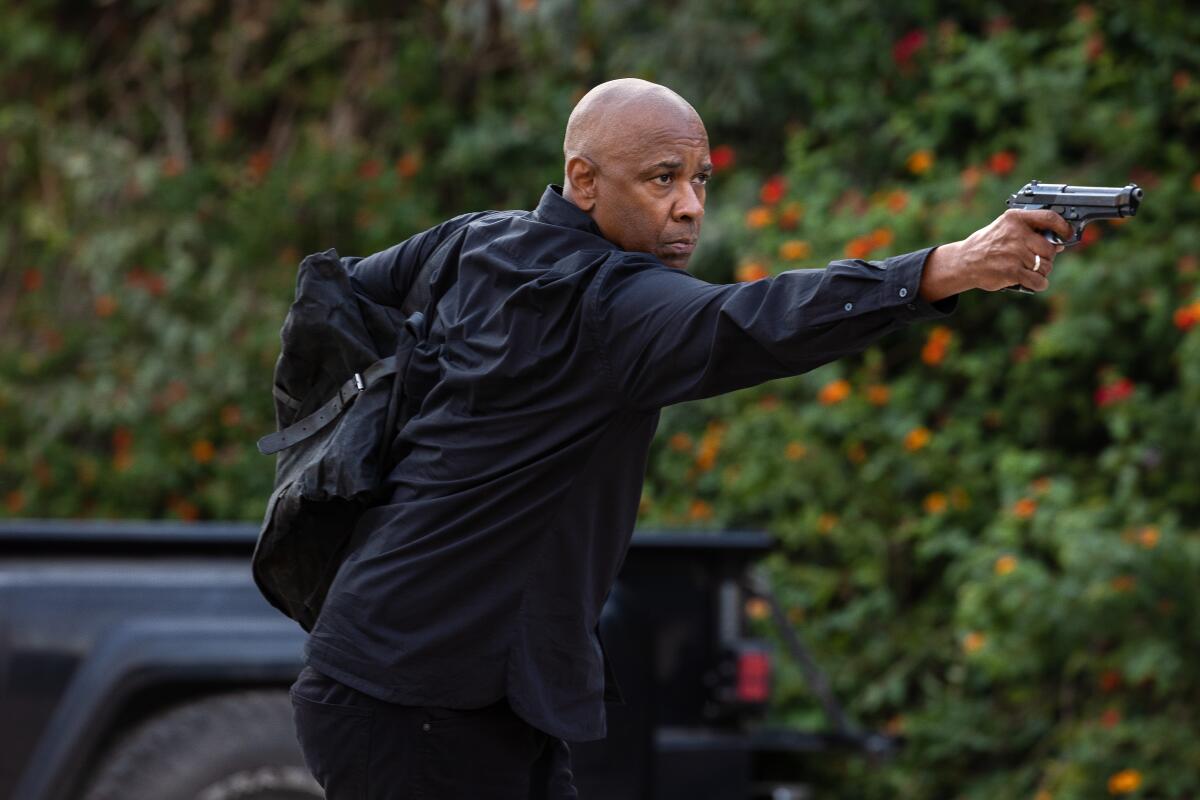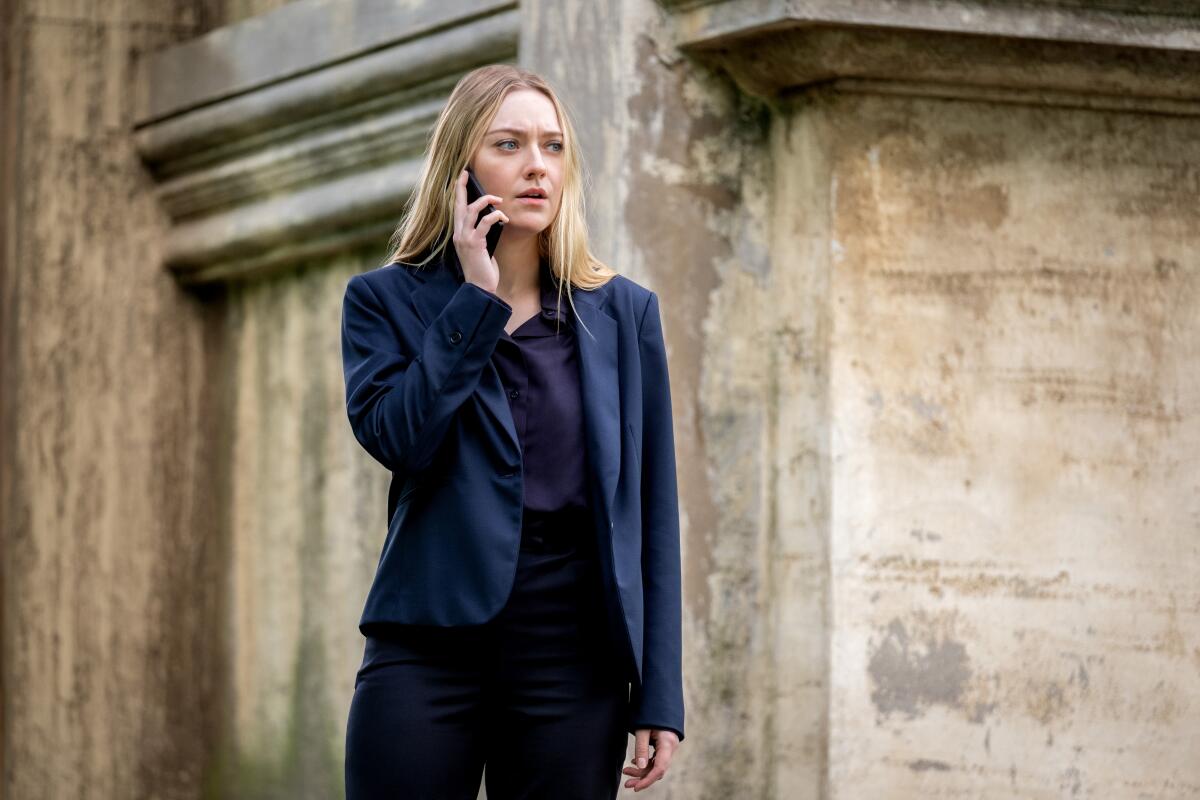Review: Headed for the Amalfi coast, ‘The Equalizer 3’ packs attitude and plenty of red sauce

- Share via
The blood flows like wine in “The Equalizer 3,” as dark as chianti, seeping into cobblestone streets, splattering onto stained glass and statuary. Star Denzel Washington and director Antoine Fuqua have used the third installment of this trilogy as the opportunity for an Italian vacay, with vigilante hero Robert McCall (Washington) leaving Boston behind for the old country and a taste of “la dolce vita.” But first, Robert has to take care of business before he can truly enjoy retirement on the Amalfi coast, which means ridding a charming village of some pesky mafiosi.
It’s clear Fuqua has been watching his Italian gangster movies, and he revels in the visual drama offered by the setting and subgenre. His compositions are stuffed with religious iconography, Baroque embellishments, claustrophobic medieval alleys and lots and lots of pasta. But he and cinematographer Robert Richardson put their own stamp on the imagery, draining and desaturating the color palette of the picturesque seaside town of Positano.
Speaking of Positano, the iconic Instagram-influencer destination poses here as a village called Altomonte, which is a real place situated between Sicily and Naples, though it is much further inland. It’s unclear why Fuqua renamed such a recognizable slice of the Italian coast for another town, but it’s sort of par for the course when it comes to the plot of “The Equalizer 3,” which is the most ephemeral of the series.
We don’t come to “Equalizer” movies (based on the 1980s TV series) for story, and this third installment privileges performance and visceral, dramatic thrills over everything else. We start in media res: Robert has already laid waste to a group of anonymous men at a Sicilian winery, butcher knives buried in brains. He will soon punch a pistol into another guy’s head and get shot himself in the process while fleeing.

The bullet in Robert’s back will be extracted by a kindly doctor in Altomonte, and while recovering in the village, he will fall in love with the warm hospitality of the people and the peaceful way of life. He just has to dispatch the bloodthirsty Camorra gang, who seek to intimidate the residents out of their homes so that they can develop resorts and casinos.
The appeal of this film is watching Washington do what he does best, and he’s having a hell of a lot of fun here, quietly threatening bad guys, flashing toothy grins, pontificating about good and evil and the necessity to do evil in order to be good, putting the hurt on swaggering psychos. It’s also the reunion of Washington with his “Man on Fire” co-star Dakota Fanning, some 20 years later. Fanning plays a CIA agent, Collins, whom he tips off about “jihad drugs” being trafficked through the winery. She shows up in town to chase down the terrorists, but she’s really there to banter coolly with Robert. Fanning’s storyline could be excised from the film completely without losing anything except the extratextual significance of seeing these actors together again.
In “The Equalizer 3,” Fuqua goes for operatic style and pulp poetics, strung together with a strangely paced and structured plot that’s about as floppy as a spaghetti noodle (the script is once again by franchise veteran Richard Wenk). It’s not unenjoyable on a purely impressionistic level, as Fuqua and Washington bring the audience along on their Euro trip and ask us simply to enjoy the ride that is Robert McCall inflicting terror and mayhem on very bad people. Sometimes that’s as good as it gets.
Katie Walsh is a Tribune News Service film critic.
'The Equalizer 3'
Rating: R, for strong bloody violence and some language
Running time: 1 hour, 49 minutes
Playing: In wide release
More to Read
Only good movies
Get the Indie Focus newsletter, Mark Olsen's weekly guide to the world of cinema.
You may occasionally receive promotional content from the Los Angeles Times.










